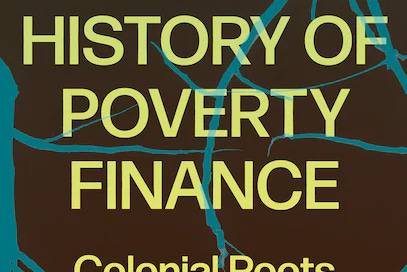Microinsurance versus microcredit: A Critical History of Poverty Finance by Nick Bernards
One of the best things about Nick Bernards’ open access book ‘A Critical History of Poverty Finance: Colonial Roots and Neoliberal Failures’ is his history of the origins of microinsurance, as distinct from that of microcredit.
Microinsurance, Bernards shows, started with efforts by the International Labour Organization (ILO) in the late 1970 and 1980s, to try to increase protection for workers outside social security systems in the Global South.
Clearly this is a different historical and ideological starting point compared with microcredit. Within the modern universe of microfinance, microcredit plans the dominant role, mainly because it’s faster and easier to make money by lending to very poor people than by getting them insured.
Other kinds of financial products can then be offered as cursory nod towards the idea of “financial inclusion.”
The result is that millions of small businesses in the Global South are one accident away from failure. A broken piece of equipment or unexpected weather can sink many of them. The microcredit industry says ‘give them a loan’ which simply leaves such businesses as exposed as they were before, but with more debt as well.
Microinsurance would provide that protection and its needs to reclaim the ground taken over the last 30 years by microcredit, which has essentially outsourced the risks of building a new financial services industry onto the some of the world’s poorest people.
Such people need less risk, not more.
Bernards’ book is available here:
A Critical History of Poverty Finance (oapen.org)
My review of the book for The Africa Report appears here:
Book Review: Colonial practices affect poverty alleviation today - The Africa Report.com




